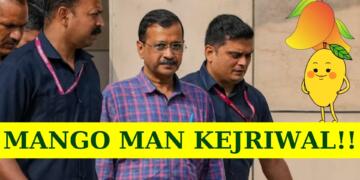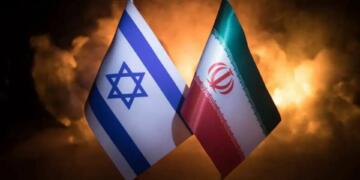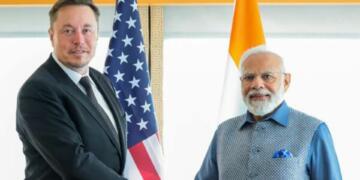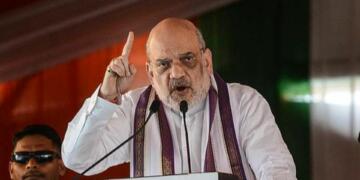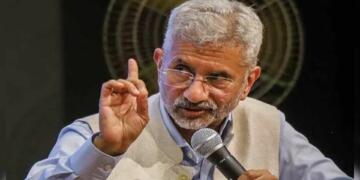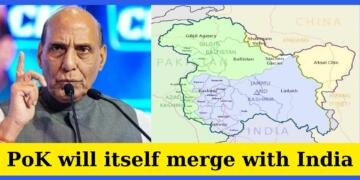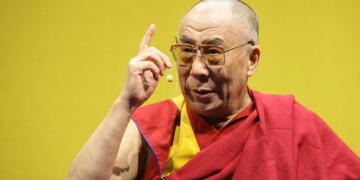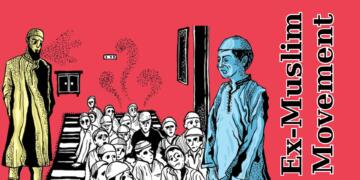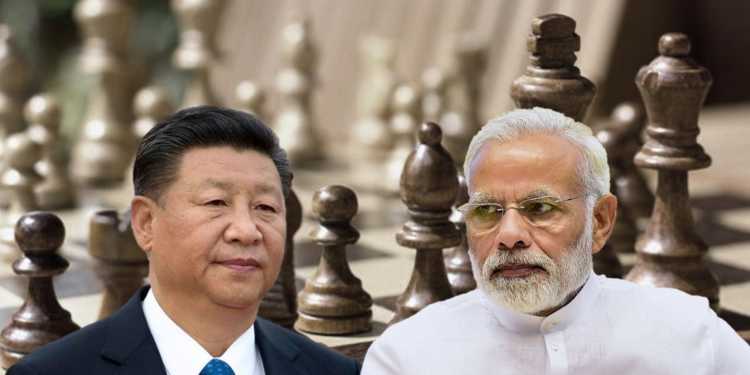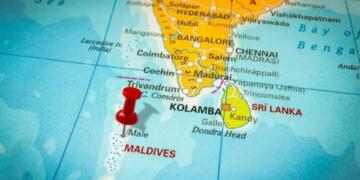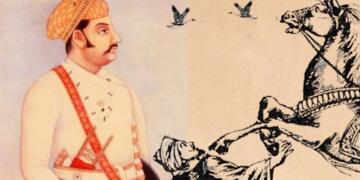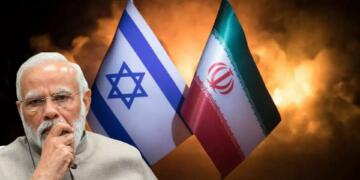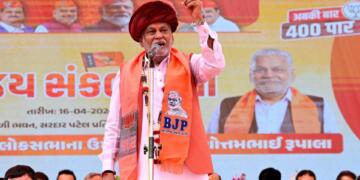This is going to be a long piece, a really long one. We will touch base with everything that concerns the 2 countries. The history of India-China relations goes back to thousands of years. The first recorded contact between two of the greatest civilizations goes back to second century BC. Throughout the human civilization, the two countries contributed most for the progress of mankind. These two geographies have one of the most stable societies on earth. The stability in Chinese society and polity is so high that some dynasties ruled the country for more than 300-400 years. On the other hand, despite multiple invasions and onslaughts, Indian culture and society has thrived through the inherent resilience.
The stability has been a major reason behind economic progress of both countries. If we take a cursory look on economic history of the world then it becomes very clear that both countries were two of the largest economies on earth, contributing to almost half of the world’s GDP. These two countries also constituted almost half of the world’s population historically and still comprise of more than one third of world’s population. But the important point to note here is that despite having such large population, the per capita income in both countries was same as those of other ancient civilizations like Greco-Roman or Persian. So having the large population contributed positively in economic growth rather than hampering it.
Historically, India has been more outward looking than China. The Chinese cultural sphere has been limited to what constitutes modern China and North Vietnam. On the other hand, Indians colonized almost all of the 14 countries of South East Asia at some point of history. India traded with Europe, Africa, and Middle East throughout its history. It influenced the societies across the world including that of China. If we go to the history of India and China interactions we find that India influenced China more than the other way around. Except a few notable exceptions, most of the kings and queens in China were believers in the supremacy of Chinese society, a view retroactively termed as ‘sino-centrism.’ But India penetrated the Chinese society through most powerful soft medium- religion. Buddhism which originated in India is largest religion of China. Most of the Indian influence in China has been through Buddhism, the learned men from China visited India to learn more about Buddhism and the country where it originated.
The power relations between both countries were skewed in favor of India in most of the history. But India became weak due to loot and exploitation by its former colonial masters. When the British left the country the country had become weaker than China. European colonial powers looted China too but the scale was very much lower than that of Indian exploitation. So, the power relation between both the countries has been skewed in favor China since 1950s. The subsequent Indian governments also contributed to this because they had minimal focus on National security. India lost the 1962 war without even fighting due to inactivity by the then government. China bullied India many times since then on border issues but the Indian governments kept a soft stance.
The equation between both the countries had started changing once again after the Narendra Modi became the Prime Minister of India. This government has been more tough in its outlook and it is not willing to succumb to Chinese pressure. The Doklam issue was one of the prime examples of the strong stand the government has taken in retaliation to the Chinese misadventures. In addition to the stare down on the military front, PM Modi also demonstrated clarity and tough stance on diplomatic front during the stand off.
On the diplomatic front, PM Modi played a masterstroke at the BRICS summit. The BRICS summit consisting of Brazil, Russia, India, China and South Africa was to be held in the coastal city of Xiamen, China in the month of September. BRICS, perhaps after the G-20 Summit, is the only multilateral engagement which has brought some considerable change on the ground. The New Development Bank (NDB) of BRICS, headed by an Indian and headquartered in China, has been making rapid strides. It wishes to be an alternative to major global financial institutions like World Bank and International Monetary Fund (IMF). More importantly, BRICS also acts as a gateway for China’s ambitions to become the global leader. As the Doklam standoff raged on precariously close to the summit, questions started arising whether PM Modi would visit China and meet Xi Jinping at a time when both the country’s troops are locked in an intense staring contest with the threat of war breaking out anytime. Had PM Modi boycotted the event, it would have meant the end of BRICS and that too at a time when China was urging to expand the BRICS and induct countries like Mexico under the ambit of BRICS Plus and trying to integrate it with China’s ambitious Belt and Road initiative. India’s boycott would have killed the proposal instantly. This, subsequently, would have led to incessant ridicule of the Chinese President and a terrible press at a time he was trying to position himself as the darling of globalization. Add to that, the all-important Congress of the Communist Party scheduled just after the summit had left Xi Jinping with no place to hide. Thus, the standoff was resolved just one week before BRICS and Narendra Modi agreed to participate.
Chinese plan to encircle India as per the string of pearls also got a counter from Indian side. In Bangladesh, China developed and modernized the Port of Chittagong. This will give it free access to the Bay of Bengal, which is strategically very important for India’s naval security. In the Bay of Bengal, China also has presence through Myanmar’s Kyaukpyu port. Through these ports, China wants to counter India’s strong presence in the Bay of Bengal. Sri Lanka, which enjoyed warm relationship with India, has allowed a Chinese company to develop the port of Hambantota. This port will be used by both China and Sri Lanka.
India, however, is countering this through energy diplomacy. India framed the agreement to build a LNG terminal near Colombo in collaboration with Japan. Sri Lanka is dependent liquid fuels for its energy requirements. This LNG terminal will help Sri Lanka to move towards clean energy. India is also helping Bangladesh in it energy requirements. Foreign Secretary Vijay Gokhle on his recent trip to Bangladesh signed an agreement to build a petro products pipeline from Siliguri to Bangladesh. This will help India to supply diesel from its Siliguri based refinery. In Nepal India is looking to supply Nepal’s energy requirements and is building an energy products pipeline from Motihari, Bihar to Nepal. The agreement was signed on Nepal PM’s recent visit to India. To counter China’s influence in Myanmar, India is building a petro products pipeline from Northeast to Yangon. India and Myanmar are in talks about building a LNG terminal near Yangon. As far as Maldives is concerned India supplies its 100 percent energy related requirements.
The Modi government appointed Vijay Gokhle as foreign secretary of India in January, 2018 just few months after the Doklam standoff. Gokhle is fluent in the main Chinese language Mandarin and known to be hawk on China. The appointment of Gokhle must have sent clear signals to China that now there will be no leniency from Indian side on bilateral issues.
Recently India refused to endorse the One Belt One Road (OBOR) initiative by China at the end of the two-day summit of Shanghai Cooperation Organization (SCO). PM Modi in his address to SCO registered concerns of India regarding China Pakistan Economic Corridor (CPEC) which passes through Pakistan Occupied Kashmir (PoK).
The OBOR’s stated goal is to develop infrastructure for poorly connected regions of the world but hidden agenda behind this ambitious plan is to lay the groundwork for a Sino centric global order. OBOR could be compared to Marshall Plan which United States announced for infrastructure building in post World War II Europe. The unstated goal of Marshall Plan was to stop countries in Europe from joining the Soviet Union and pressure them to join NATO by building ports, pipelines, roads, and railways for them. Similarly, China by building ports, economic zones, railways for poor countries like Pakistan through OBOR wants to bring them under its hegemony. The OBOR would also help the country economically because it will save China from the economic decline that it’s slowing growth rate and high debt levels seem to portend. The Chinese economy is slowing down after almost three decades of unhindered growth which made China the second largest economy in the world. The infrastructure initiative, OBOR, according to China’s leaders, would create new markets for its companies and at the same time provide a shot in the arm to the struggling banks and state-owned enterprises. The nationalized companies of China are posting negative growth since last few years and its banks are struggling because the lending activity has slowed down significantly. China has foreign reserves of more than three trillion (This is one and a half times of India’s GDP for this fiscal year) and through this project, the country will invest this forex throughout the world.
Now, many countries are dissenting from the view that OBOR is a solution to their ill developed infrastructure. The Chinese loan through OBOR comes with many ill suited conditions like high interest rates, procurement guarantees for Chinese companies, imported workers. The society in the countries where the Chinese capital goes had turned skeptic because they are not accustomed to the Chinese way. The western capital, which China seeks to replace, interacts with these countries in a totally different manner. It is more cautious, cooperative with local capital and civil society, and respectful of political sentiment, even from dissidents. China is not used to these things because there is no democracy and political accountability in their own country. The Chinese state implements projects in its own country with heavy handedness and no room for dissents. So the state run Chinese companies which are main players in OBOR implementation are not used to any dissent from other players of the society except the government. This is the main reason that Chinese companies has not been able deliver with the pace and efficiency which they used to in their own country.
The first disagreement to OBOR came from India but now Sri Lanka, Malaysia, and Myanmar have joined the league. In Myanmar, the country’s Planning and Finance Minister Soe Win told Nikkei this week that his government would demand that a new port on the Bay of Bengal be “slimmed down.” The anxiety of Burmese side is obvious because China accounts for more than 40 percent of its external debt which is ‘not recommendable’ according to Soe Win. It is a major blow to OBOR as this port would have provided shortest way to transport oil to southern China and avoiding the strategic checkpoint at Strait of Malacca.
In Sri Lanka, the new Prime Minister Ranil Wickremesinghe has taken a fairly anti-China stance. The Hambantota port was given to China as agreed but many counter strategies were adopted to avoid any military activity by the Chinese. As the first move to counter any encroaching activities by Chinese companies at the Hambantota Port, the Sri Lankan government has decided to move its southern naval headquarter there. The office of Prime Minister Ranil Wickremesinghe quoted him as saying, “The Sri Lanka Navy is moving its Southern Command to Hambantota. There is no need to be frightened as the security of the port will be under the control of the Sri Lanka Navy. Sri Lanka has also informed the Chinese that Hambantota cannot be used for military purposes.” Then in a big boost to Indian strategic interests, Sri Lanka gave India permission to operate an airport in Hambantota. The airport is very close to Hambantota seaport which China had previously taken from Sri Lanka on a 99-year lease. The airport could work as a counter to any military activity by China on the Hambantota seaport. Minister of Civil Aviation Nimal Siripala de Silva told the Parliament that “India will operate Sri Lanka’s loss-making Mattala Rajapaksa International Airport in Hambantota. The joint venture would see India gain a major stake of the airport.” The airport is named after former Sri Lankan president Mahinda Rajapaksa who ruled the country for almost a decade. The project was funded through high-interest rate commercial borrowings from China for which Rajapaksa was severely criticized.
In Malaysia, the campaign of the newly elected Prime Minister Mahathir bin Mohamad included a hardline stance against China. The borrowings on high interest rate by previous government from Chinese did not go well with the opposition and the civil society. Then the corruption links between Chinese companies and the then prime minister Najib Rajak made things worse. Now the Malaysia government has told Chinese contractors to suspend work on $20 billion East Coast Railway Link. The 688 km (430 miles) long East Coast Rail Link was planned to connect the South China Sea in the east coast of the Malaysian Peninsula with strategic shipping routes in the west, and was a major part of China’s infrastructure push across Asia and beyond. Malaysian ports are very important in world trade as the main naval route between East Asia and Europe passes through it. Malaysian Finance Minister Lim Guan Eng has said that “We expect that the ECRL project will only become financially and economically feasible if there is a drastic price reduction of the project by the CCCC, Completing Malaysia’s biggest rail project as previously planned would cost $20 billion, nearly 50% higher than estimates under the previous government.”
In Pakistan, the China Pakistan Economic Corridor (CPEC) project is also not going very well despite the brotherhood between both the countries. The value of CPEC projects is around $62 billion for which Pakistan has to import lot of products from China. This has shot up the import bill of Pakistan, posing a balance of payments crisis for the country. Now, China has to bail them out, repeatedly. Pakistan has clearly told China that if they do not give money then they will have to go to IMF. A loan from IMF will come with many terms and conditions including changes in CPEC agreements. So Now Pakistan is blackmailing China that if they do not give money then CPEC will be virtually stalled. There have been also some major social issues in Pakistan due to CPEC. An European think tank noted that the socio-cultural friction between the Pakistani society and the Chinese people working there. The Chinese people working in Pakistan are westernized in their traits and they are also atheist. On the other hand, majority of the people in Pakistan are devout Muslims and see westernization and modernization as sin. There have been many reports about Pakistani people objecting to the way Chinese women workers dress. Pakistan government has tried to convince its people of tolerating the cultural traits of Chinese official because the Chinese government has given huge loans to the country but the defiance of the people against Chinese culture remains the same.
The Chinese economy is slowing down with many rating agencies downgrading its future economic prospects. The situation is so bad that many Chinese companies have defaulted on bond payments. OBOR, the pet project of Xi Jinping’s domestic and foreign policy agenda has shown signs of failures. If OBOR fails, it will have disastrous implications for Chinese economy as well as the global stature of China. The country had a peaceful rise over the last four decades but signs of decay are visible now. So, the relationship between India and China are balancing once again after a skew towards China for the last few decades.


















